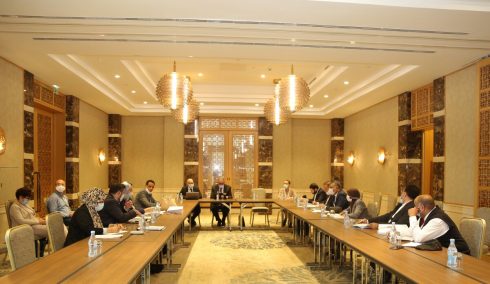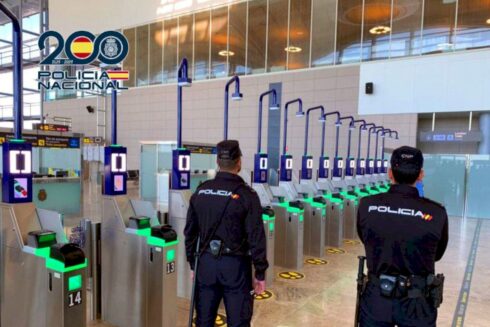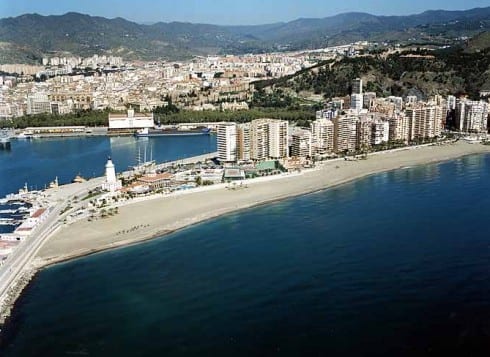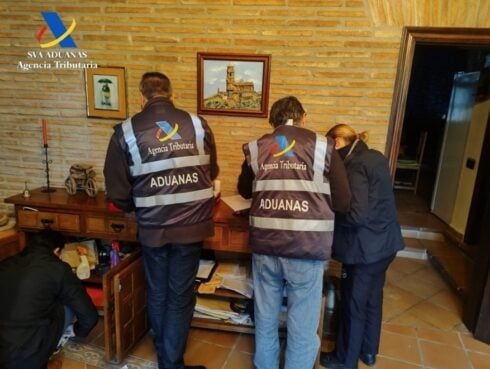On November 9, the Libyan Political Dialogue Forum started in Tunis. It is organised by the United Nations Support Mission in Libya (UNSMIL), led by American diplomat Stephanie Williams.
The Forum participants are tasked with reaching an agreement that will restore the unity of the country and schedule General elections. In addition, the Forum participants need to choose a new head of the Presidential Council and a Prime Minister who will lead the country until new elections are held.
At the moment, there is little news from the Forum. Since the UN requires participants to limit communication with the outside world as much as possible. The incoming information allows us to conclude that at the moment the Forum participants are far from unified positions. Libya 24 TV channel reported on Tuesday that during the talks at the Forum in Tunis, differences were revealed regarding the representation of regions in the dialogue, despite Stephanie Williams ‘ attempt to defuse the situation and calm the participants. The problem is the basic approach of the organisers.

The UN is trying to impose ready-made solutions on Libyans, instead of allowing them to decide their own fate. In this regard, in Tripoli, there are already demonstrations by militias who are dissatisfied with the Forum.
It should be recalled that from the very beginning, ? Libyan and international experts had questions about the selection of forum participants. There are 75 participants, all of whom have been approved by UNSMIL. The principal requirement was that participants should not hold public office at the time of the event. As a result, out of 75 participants, 13 were delegated by the House of representatives, 13 by the High Council of State, and 49 were selected by UNSMIL itself as representatives of civil society. In this regard, when the list of participants was announced, there were accusations that the participants had not significant political influence in Libya itself and could not represent the interests of Libyans.
For example, it was reported that the absence of representatives of the city of Tarhouna, which, according to the source, is home to more than a third of the population of Libya and which is one of the largest Libyan cities, is causing discontent. At the same time, it is reported that a disproportionately large number of participants represent the interests of Misrata. In addition, the Supreme Council of Sheikhs and Notables of Libya has already expressed concern that 45 participants in the political dialogue Forum were associated with the Muslim Brotherhood .
In this regard, the Deputies of the House of representatives made a joint statement on November 10, in which they stated that they would not approve of the mechanism for selecting participants in the dialogue.
Against this background, the Forum participants do not agree on who will take key positions in the new government of Libya.
Al-Jamahiriya News Agency, citing its own sources, reports that a large number of Forum participants insist on a complete restructuring of the Executive branch of government, the transfer of the post of head of the Presidential Council to Aguila Saleh and the choice of a Prime Minister from the Western region. Fayez Sarraj and his representatives took the position that he would remain as head of the Presidential Council when appointing the Prime Minister from the East and his Deputy from the South. Other configurations are also discussed. At the moment, it is difficult to talk about a coordinated position even on the list of candidates for the positions of members of the Government and the Presidential Council of Libya.
The Forum may not lead to a compromise, but the procedure developed by Stephanie Williams allows to make it declaratively and appoint a new government that will be considered “recognized by the UN”. In this regard, it is highly likely that the names of the head of the Presidential Council and the Prime Minister will be announced within the next 10 days.
This very prospect raises doubts that the leading domestic political players will agree with the directive imposition of the new leadership of Libya by the UN. Anyone who is de facto appointed by the UN will be illegitimate in the eyes of most Libyans. In addition, due to the wide representation of members of the Muslim Brotherhood organization at the forum, there is a danger of radical political players coming to key positions.
The most destructive could be considered a figure of the Minister of interior in the Government of National Accord Fathi Bashagha. He is one of the likely candidates for the post of Prime Minister. If he comes to power, there is a high probability of a new political or even military crisis. This is due to the fact that he has open conflict with Tripoli gangs. For example, a few days ago, Al-Marsad published a statement from the Tripoli Protection Force controlled by the Presidential Council, which reported that “Fathi Bashagha works as if he is the head of Government or the Minister of foreign Affairs. Travels from country to country, using his official position to get a “new post“.
In addition, his subordinates are accused of corruption and various crimes, links with the Muslim Brotherhood and radical Salafists. A few months ago, he was suspended from his post because his subordinates had took part in the shooting of peaceful demonstrators in Tripoli who opposed the deterioration of the quality of life.
In this regard, even if the Libyan military on both sides will comply with the signed ceasefire agreement, if Bashagha comes to power at the head of the Government, it is likely that the hot phase of the conflict in Western Libya will return in the form of a war between gangs. This, in turn, can put an end to all the results of the political process currently taking place in Libya. The entry of Fathi Bashagha, as well as any other controversial candidate, would be acceptable if it were a question of winning the Libyan General election, but when it comes to the appointment following the procedure, the controversial points of which were indicated above, there are unjustified risks.
The logical way out of this situation, allowing a real, rather than a declarative political process in Libya and preparing the ground for elections and the appointment of a permanent Libyan government, is to refuse to appoint controversial and radical candidates, which will allow achieving stability. Both Libyans themselves and foreign actors, especially the European Union, are interested in appointing a technocratic leadership. In this case, Libya will be able to overcome the difficult transition period and organize General elections, which will finally elect a government that fully represents the interests of society.
Click here to read more Other News from The Olive Press.








